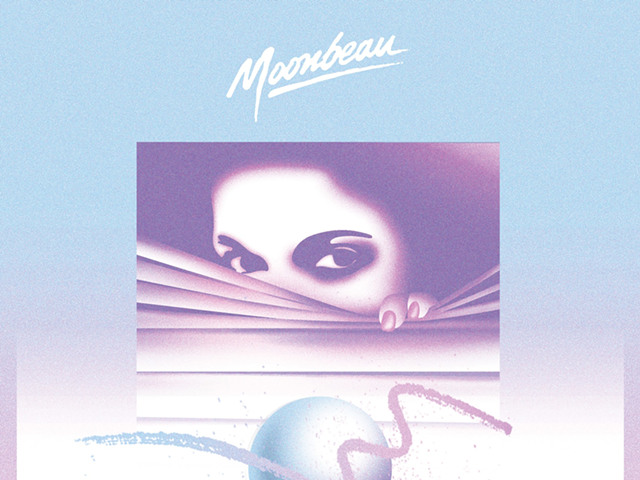Back when Tubeway Army was a standard issue Punk band, Numan fought his label to switch the band towards Electronic music, which resulted in a whole lot of gold and platinum on Numan’s wall – for “Are ‘Friends’ Electric” and “Cars,” as well as the Replica and The Pleasure Principle albums. That directional shift in the late ’70s also helped birth a cornerstone of the Electronic movement.
And when the genre he helped create considered him a relic, Numan reinvented himself with a darker, heavier, guitar-based sound that leaned toward the Industrial/Goth end of the musical spectrum. And while this might have felt like a seismic shift from an outside perspective, for Numan it was all just part of his creative journey.
“It doesn’t feel like an evolution to me, to be honest,” says Numan via e-mail from his current European tour. “Every album meandered through style but always had guitar, bass and drums merged with the electronic elements. It certainly got heavier in ’94 with the Sacrifice album, and has stayed heavy ever since, but the mix is essentially the same as it’s always been. I think of Sacrifice as a key turning point in the sound I have today but that was made nearly 25 years ago so it’s been the ‘Industrial’ sound (that) has become the sound of my career more than any other.”
Numan’s dedication took a slightly different tack in the late ’90s. To that point in his career, there had rarely been more than a two-year gap between albums. Suddenly, the span widened — particularly between 2000’s Pure and 2006’s Jagged — but Numan hadn’t lost his mojo. He’d found it in his three daughters.
“A lot of it has to do with family,” Numan says. “I didn’t want to miss a single thing in their early years. First words, first steps, first laugh, I wanted to be around for everything so I stopped working for a while.”
The four-year span between Numan’s last two albums, 2013’s Splinter (Songs from a Broken Mind) and last year’s Savage (Songs from a Broken World), was more a result of the success of Splinter, his first U.K. Top 20 album in three decades. The subsequent hit-album touring took well over a year, which was followed by collaborations with everyone from VOWWS to Jean-Michel Jarre; he also accepted the Moog Innovation Award and the Ivor Novello Inspiration Award in that stretch. The release of the similarly titled Savage indicated an album cycle, but Numan notes the albums are not linked.
“The only similarity between the last two albums, admittedly a big one, is the style of titles,” he says. “They are completely different albums though, not connected as far as subject matter is concerned. Splinter was deeply personal and looked at my battle with depression at that time and my recovery. Savage is all fiction and looks at one possibility of life in the future after a global warming catastrophe.”
Numan has already done extensive touring on Savage, with more work on the calendar ahead. He’s anxious to finish the novel that initially inspired the Savage album, he’s contributing to yet another a film score and he’ll begin writing his next album early next year. He has a trio of new songs slated for a deluxe edition of Savage, and one or two may end up in his current set list, joining the Savage songs and a select group of tracks from his illustrious discography.
“We play a reasonable amount of older stuff, maybe a quarter to a third of the set,” Numan says. “I think that’s enough, especially when you’re essentially there to promote a new album rather than play a retro tour. I don’t want to be arrogant and ignore fans that like those older songs, of course, so it’s a difficult balance to get right, but for me one-third of the show looking backwards is all I can stand. We also try to rework those older songs from time to time to keep them fresh.”
An interesting aspect of Numan’s live performance that has been evolutionary is the passion and energy that typifies his translation of his Industrial/Goth material, as opposed to the emotionless “android” period of Tubeway Army and the later albums and shows under his own name. While he might have chosen to present his new material through his old stage persona, he admits that his new direction’s energy inspired him to become more engaged as a performer.
“The live performance part of me evolved with time, a growing confidence and in sync with the needs of the music,” Numan says. “The music became much heavier, far more aggressive and so the way you present that has to change as well. It wasn’t a conscious decision though, just something that felt necessary as each new album came along. I look back at live clips from the last 20 years and I can see clear changes in the way I move from one album to the next, and none of that was thought about or rehearsed. It came from the music and the way it made me feel on stage.”
As much as Gary Numan has been cited as an Electronic pioneer and a huge musical influence, praised and covered by the likes of Dave Grohl and Trent Reznor, he is also a role model for people on the autism spectrum. Ultimately diagnosed with Asperger’s Syndrome, Numan has turned his challenge into an asset.
“I think as an Asperger’s person you tend to see the world, and your place in it, a little differently, and so that skewed stance has an effect on everything, and that will be obvious in what you write,” Numan says. “Beyond that it gives me a different set of parameters emotionally, I know I react very differently to certain things than people around me. It gives me a focus and drive bordering on obsession. It’s just incredibly useful to me and I would never want to be any other way. The downside is I’m often misunderstood in a somewhat negative way. I’m useless at socializing but I can deal with that. I hide behind my wife Gemma, who is gifted at interacting with people.”
Click here for tickets and more for Gary Numan's show Friday, Sept. 14 at Bogart's.






